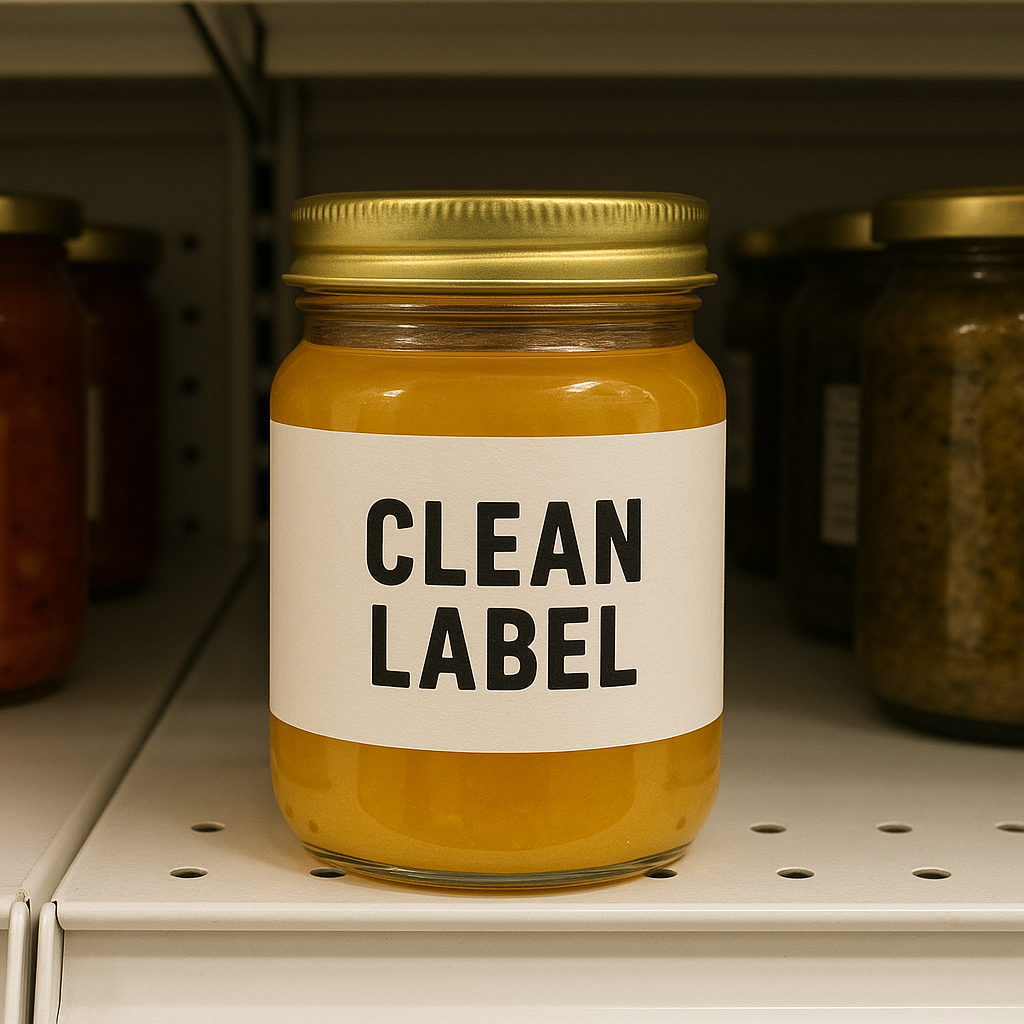
Clean-label trend driving change
Clean-label trends drive plant-protein innovation, combining taste, nutrition, transparency, and sustainability to meet consumer expectations.
Food scientists are pioneering new protein ingredients, technologies and formulation strategies to deliver great tasting plant-protein products to meet evolving consumer expectations.
Leading brands are needing to re-formulate products and processes as consumers change their shopping patterns looking for clean label, nutrient dense, functional and sustainable products. All with less processing and greater transparency of sourcing and production.
New plant ingredients or new hybrids are becoming a significant part of clean-label formulations, many can be used with less processing to offer nutrient-rich products that are more sustainable.
Clean labels appeal to consumers seeking transparency, authenticity and what they see as healthier, eco-friendly choices in their food and beverages.
About three-quarters of consumers say they’ve reconsidered what they are buying because of the ingredient list, according to Innova’s Now & Next in Clean Label in the US & Canada Report, released in April 2025.
Consumers are reading labels carefully and trying to choose products with fewer artificial ingredients and more health or nutrition benefits. Clean-label trends show, says Innova, that plant ingredients are becoming an important part of formulations, offering nutrient-rich and natural alternatives. More than one in three consumers say they are willing to opt for new or novel ingredients for a more natural product.
Clean-label consumers are becoming more educated about ingredients and asking for more transparency from companies, more often asking them to justify why something is used or about how it is processed.
While a clean label provides a significant advantage to a brand, taste remains the No. 1 driver for consumers buying plant-based products — especially ensuring repeat customers. It’s key to create products that taste delicious while appealing to label-conscious consumers.
This is all a challenge and an opportunity for food scientists and plant-based companies.
There’s a renewed push into next-gen plant proteins, looking beyond soy and peas to newer proteins such as fava beans, lupins and canola for better allergen profiles and an improved amino acid balance.
Food scientists are combining proteins to achieve complete amino acid profiles and an improved mouthfeel. There’s a big trend to fungi and algae and all sorts of hybrids, especially with the use of fermentation processes, to achieve solutions to a wide range of food and beverage taste and nutrition challenges. Plant oils and new emulsifiers, such as sunflower lecithin and chickpea flour, are improving creaminess in dairy alternatives without the use of additives. High-moisture extrusion and 3D structuring is improving the replication of muscle-like fibers in plant-based meat. Advances in shearing technologies is improving its bite, juiciness and chew factors. Native starches, oats or chickpeas are being used as natural binders. Rice syrup or other alternative sweeteners like agave are growing alongside plant-based coloring agents.
Ingenuity and purposeful innovation are creating these high-quality ingredients and processes to create food ingredients of the future to meet the changing needs of consumers. Clean labels have emerged as a powerful way for brands to build trust, demonstrate value and stand out in the market.
Of course, there isn’t consistency or standards in the marketplace on what exactly is a clean label. Different consumers bring varying expectations to what they expect to see. For some, it’s the number of ingredients. For others, it’s what the ingredients and processes are that count most. Plant ingredients and minimal processing can help consumers meet their desire to reduce their use of ultra-processed goods.
Many companies are already working to get ahead of new FDA and state regulations around labelling and the use of synthetic dyes and other additives and preservatives. These changes are going to lead to some major reformulation changes for food companies.
As clean-label trends continue to evolve, transparency, trust, recognizable ingredients, minimal processing and a sustainable story are key.
The trend reflects both the consumer’s values and the brand’s values.
Solutions and Innovations
Brian Klopf, a protein scientist with Mars, will be diving into sustainable protein solutions and cutting-edge innovations driving the future of food at Bridge2Food North America in Minneapolis, Oct. 21-23. Brian has a strong background in ingredient functionality and consumer-focused design, and he helps advance Mars’ efforts to deliver sustainable and appealing alternatives in the protein space.
There will be two opportunities at the event to connect with Brian:
• Day 1 / Course Session – Plant-based Food Product Formulation: Balancing Nutrition, Functionality & Consumer Appeal
Explores how food scientists are leveraging new protein sources, ingredient technologies, and formulation strategies to deliver nutritious, functional and great-tasting plant-based products that meet evolving consumer expectations.
• Day 2 / Summit Panel – Clean Label Trends: Reformulating for Simplicity, Nutrition & Taste
Discusses how leading brands are reformulating products to align with consumer demand for clean labels, natural ingredients, and transparent nutrition — while maintaining taste, functionality and scalability. Also on this panel are Bill Aimutis, CEO of the Bezos Center for Sustainable Protein at North Carolina State University, and Julie Emsing Mann, director of the North Carolina Food Innovation Lab (NCFIL)
Hosted in partnership with the MBOLD Coalition, Bridge2Food North America will take place at the McNamara Alumni Center and brings together 400+ industry leaders and pioneering companies in the sustainable food production industry.
⮞ An Early-Bird 3-Day Full Pass is on sale until Sept. 26
⮞ Minneapolis, MN | Oct. 21–23, 2025
